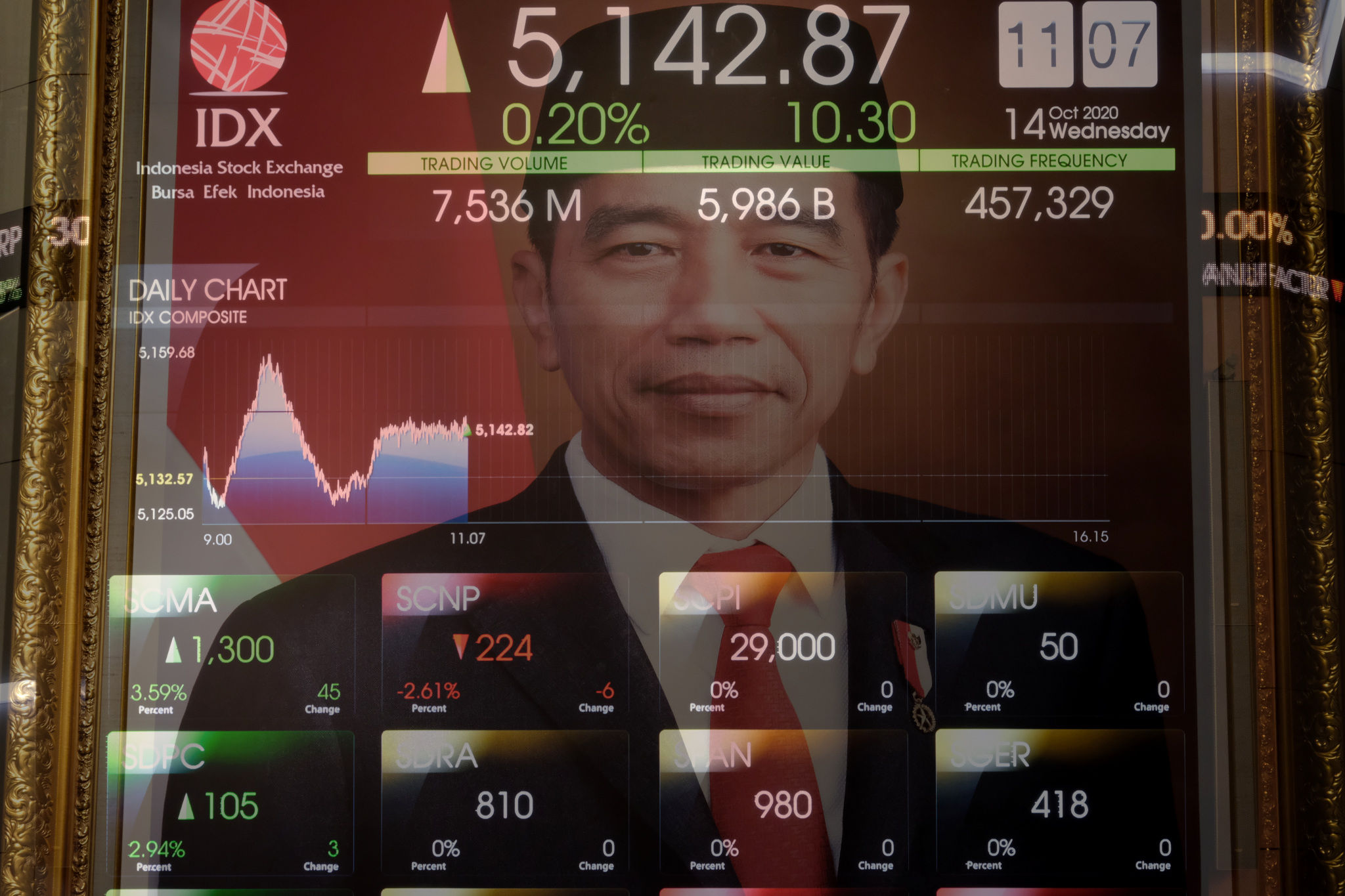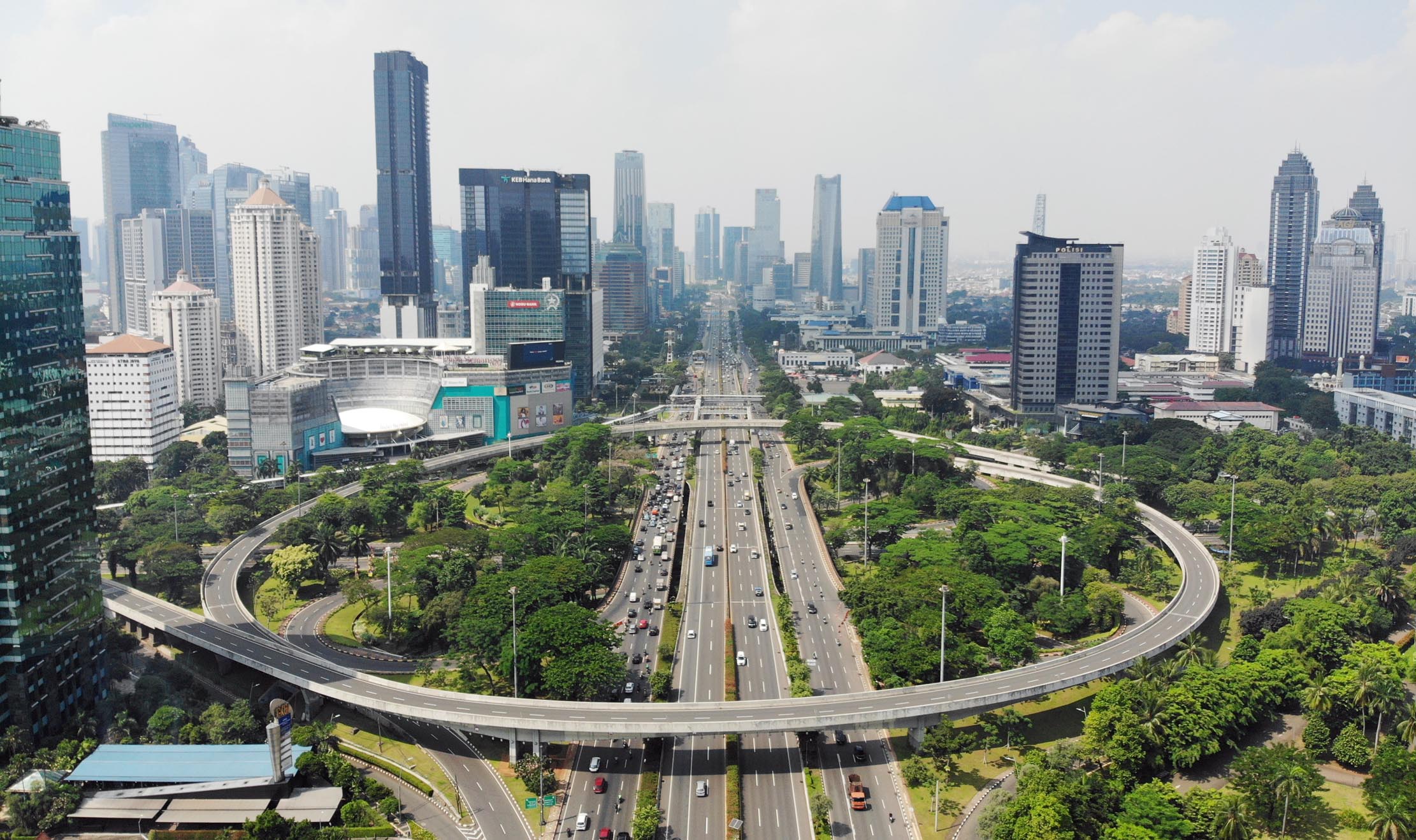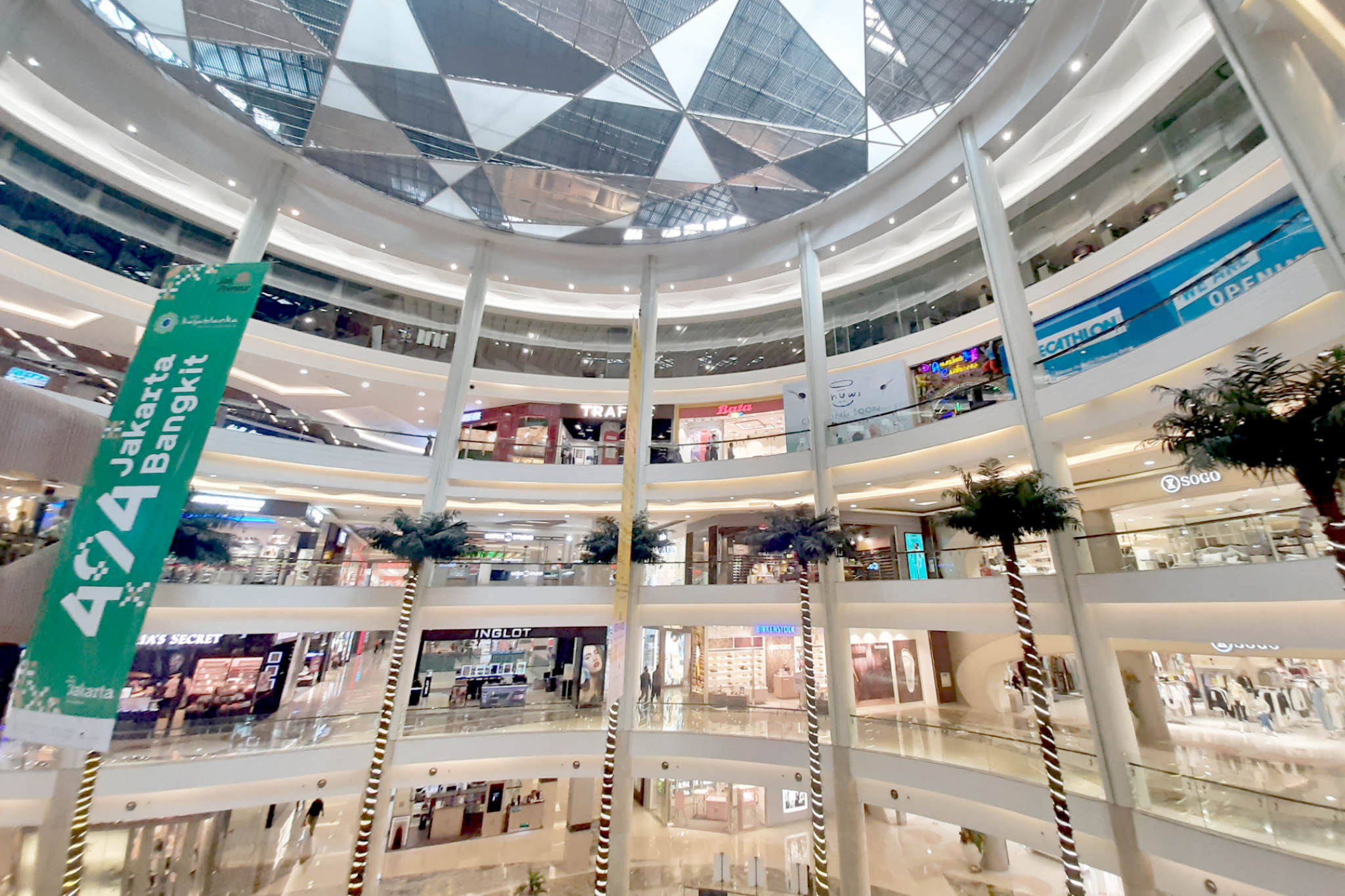
Hampering Corona Volume Two (Serial 5): A Glimmer of Hope from the Stock Market During Emergency PPKM
JAKARTA – The government has officially implemented the Enforcement of Emergency Community Activity Restrictions (PPKM) from 3-20 July 2021. This regulation is expected to suppress the increasing spread of COVID-19 cases in Indonesia. On the other hand, it is believed that this policy will have a negative impact on the Indonesian economy, which is trying […]
Korporasi
JAKARTA – The government has officially implemented the Enforcement of Emergency Community Activity Restrictions (PPKM) from 3-20 July 2021. This regulation is expected to suppress the increasing spread of COVID-19 cases in Indonesia.
On the other hand, it is believed that this policy will have a negative impact on the Indonesian economy, which is trying to recover. A number of business actors were forced to tighten their belts again amid tightening social restrictions.
Shortly after President Joko Widodo (Jokowi) announced the implementation of Emergency PPKM, Minister of Finance, Sri Mulyani Indrawati, immediately corrected Indonesia’s economic growth target in the third quarter of 2021 by 6.5%.
- Modernland Realty Raup Marketing Sales Rp341 Miliar pada Kuartal I-2021
- Waskita Karya Raih Kontrak Pembangunan Jalan Perbatasan RI-Malaysia Rp225 Miliar
- Pengelola Hypermart (MPPA) Berpotensi Meraih Rp670,85 Miliar Lewat Private Placement
- Gandeng Visa Indonesia, MNC Bank Luncurkan MotionVisa
- Pemkot Tangerang Buka Posko Pengisian Oksigen Medis
Sri Mulyani is pessimistic that the target will be achievable amid the current condition. According to her, the Emergency PPKM policy relatively tighter compared to Micro PPKM, thus potentially slowing the economic growth.
“In normal terms, our baseline was at 6.5 percent in the third quarter, but this was before the Emergency PPKM took place. With the Emergency PPKM, depending on how long it will take it will decrease below 6.5 percent,” she said in a virtual conference, Friday, July 2, 2021.
Ani, Sri Mulyani’s nickname, said that the component of gross domestic product (GDP) that would be greatly affected by this policy, is especially household consumption, which is the biggest contributor to the country’s economy.
However, she emphasized that the Emergency PPKM would not have much effect in investment in Indonesia. So, how exactly is the impact of Emergency PPKM on the Indonesian capital market?
Emercgency PPKM: The Poison or the Cure?

Suasana di kawasan lingkar Semanggi saat hari pertama pemberlakuan PPKM Darurat mulai tanggal 3 – 20 Juli 2021. Foto : Panji Asmoro/TrenAsia
Observed over the past week, the movement pattern of the Composite Stock Price Index (JCI) did not show any indication of panic in the market. It was different when the implementation of the Emergency Brake of Large-Scale Social Restriction (PSBB) in September 2020 made the index slump to a level of 4,800.
According to data from the Indonesia Stock Exchange (IDX), during the week (June 28 – July 2, 2021), the JCI edged up about 0.01% to a level of 6,023.01 at the close of trading on Friday, July 2, 2021. Meanwhile, the JCI was closed the previous weekend. at the level of 6,022.40.
The CEO of Finvesol Consulting, Fendy Susianto, assessed that the implementation of the Emergency PPKM this time would be responded positively by Indonesian capital market players. This can be seen from the weekend trading data which closed in the green zone.
“The JCI is still at the level of the 6,000s. That means good and shows restrained and investor confidence is still quite good. This shows that investors are responding positively to the Emergency PPKM policy,” he said during a conversation with TrenAsia.com, Saturday, July 3, 2021.
- Modernland Realty Raup Marketing Sales Rp341 Miliar pada Kuartal I-2021
- Waskita Karya Raih Kontrak Pembangunan Jalan Perbatasan RI-Malaysia Rp225 Miliar
- Pengelola Hypermart (MPPA) Berpotensi Meraih Rp670,85 Miliar Lewat Private Placement
- Gandeng Visa Indonesia, MNC Bank Luncurkan MotionVisa
- Pemkot Tangerang Buka Posko Pengisian Oksigen Medis
In line with this, the President Director of PT Anugerah Mega Investama, Hans Kwee, also appreciated the Emergency PPKM policy. He sees this policy as a form of the government’s serious attitude in dealing with the ferocious spread of COVID-19 lately.
Even so, he said market participants will continue to observe the effectiveness of the policy in reducing the number of cases of the spread of COVID-19. Therefore, this social restriction policy must produce results through data on a decrease in the number of positive patient cases.
“It is hoped that after the implementation of the Emergency PPKM, COVID-19 cases will immediately decrease. Because if nothing is done and the cases continue to rise, it will be even more worrying,” he added.
Head of Research at Mirae Asset Sekuritas Indonesia, Hariyanto Wijaya, also shares the same view regarding the impact of Emergency PPKM on Indonesia’s capital market activities. For him, this policy will not make the JCI fall.
“Indonesia will implement an emergency PPKM to contain the daily spike in COVID-19 cases, which in our opinion should not cause the JCI to collapse,” Hariyanto wrote through his daily research, quoted on Sunday, July 4, 2021.
The Retail Sector Becomes the Victim?

Suasana pengunjung dan tenant di pusat perbelanjaan Mal Kasablanka, Jakarta, Rabu, 23 Juni 2021. Foto: Ismail Pohan/TrenAsia
Although it does not have a significant impact on the composite index, it cannot be denied that there will be sectors that will receive the impact of implementing this Emergency PPKM. It is almost certain that the sectors that will have the most impact are retail to issuers managing malls.
Through his research, Hariyanto estimates that the policy will suppress the performance of a number of retail issuers such as PT Ace Hardware Indonesia Tbk (ACES), PT Mitra Adiperkasa Tbk (MAPI), and PT Ramayana Lestari Sentosa Tbk (RALS).
This also applies to issuers managing shopping centers such as PT Pakuwon Jati Tbk (PWON), PT Ciputra Development Tbk (CTRA), and PT Summarecon Agung Tbk (SMRA). On the other hand, Hariyanto projects that the shares of PT Medikaloka Hermina Tbk (HEAL) will become a profitable issuer.
“We think that HEAL is a good health stock to monetize from the current trend of COVID-19 cases,” he explained.
- Modernland Realty Raup Marketing Sales Rp341 Miliar pada Kuartal I-2021
- Waskita Karya Raih Kontrak Pembangunan Jalan Perbatasan RI-Malaysia Rp225 Miliar
- Pengelola Hypermart (MPPA) Berpotensi Meraih Rp670,85 Miliar Lewat Private Placement
- Gandeng Visa Indonesia, MNC Bank Luncurkan MotionVisa
- Pemkot Tangerang Buka Posko Pengisian Oksigen Medis
However, recent trade data suggests otherwise. The day after the Emergency PPKM, the six listed companies engaged in the retail sector and mall managers still showed quite good movements. Even if corrected, the decline is not too deep.
Cited from RTI Business, MAPI shares actually rose 2.42% to a price level of Rp635 at the end of the trading session on Friday, July 2, 2021. In fact, ACES shares soared 6% to a price level of Rp1,325 per share. However, RALS corrected 0.74% and closed at a price level of Rp670 per share.
On the same occasion, CTRA’s shares managed to rise about 3.33% to the level of Rp930 per unit. Meanwhile, PWON shares closed at a stagnant position at a price of Rp442 per share. On the other hand, SMRA was slightly corrected by 0.60% towards the price level of Rp830 per share.
JCI July 2021 Projection

Gambar multiple exposure logo Bukalapak dan layar pergerakan IHSG di Jakarta, Kamis, 24 Juni 2021. Foto: Ismail Pohan/TrenAsia
Prior to the implementation of the Emergency PPKM, there were a number of analysts who projected that the JCI in the July 2021 period would fly high. There is even a target to touch the level of 6,800 – 7,000.
However, this target was lost after the announcement of the policy. These targets will be readjusted, in line with the implementation of the Emergency PPKM which will last until July 20, 2021.
Likewise, Fendy, the man who is usually called OMFin lowered his expectations for the JCI in the July 2021 period with support and resistance levels of 6,050 – 6,100. Previously, he targeted the JCI to be in the range of 6,100 – 6,300 this month.
- Modernland Realty Raup Marketing Sales Rp341 Miliar pada Kuartal I-2021
- Waskita Karya Raih Kontrak Pembangunan Jalan Perbatasan RI-Malaysia Rp225 Miliar
- Pengelola Hypermart (MPPA) Berpotensi Meraih Rp670,85 Miliar Lewat Private Placement
- Gandeng Visa Indonesia, MNC Bank Luncurkan MotionVisa
- Pemkot Tangerang Buka Posko Pengisian Oksigen Medis
“Now maybe it won’t be too far from the initial target, maybe 6,050 – 6,100. Because my target by the end of the year is only 6,600-6,700,” he said.
Meanwhile, Hans Kwee estimates that during July 2021, the JCI will fluctuate with support at 5,884 and resistance at 6,134. Apart from Emergency PPKM, according to him, several other domestic and foreign sentiments will also overshadow market movements during this period.
“I think the JCI will fluctuate this month with support at 5,884 and resistance at 6,134. The possibility will still be at that level and still in the technical rebound phase,” he explained.
Hope in the Midst of Shock

Vaksin COVID-19 mendorong IHSG di pasar modal / Wray.sk /Fox Business
In the midst of the onslaught of the new variant of the Corona Virus that is rampant in Mother Earth and the tightening of social activities, there seems to be a glimmer of hope for investment growth in Indonesia.
In fact, this country is still the main destination for global investors to invest, compared to other Southeast Asian countries.
OMFin explained, in terms of returns, Indonesia is still attractive in foreign eyes when compared to the Philippines, Malaysia, Singapore, and Vietnam. In fact, Indonesia is still more attractive compared to India and Hong Kong.
“Just imagine, our yield spread (the nominal yield debate) continues to stay at around 5.5%, so this is quite good,” he said.
- Modernland Realty Raup Marketing Sales Rp341 Miliar pada Kuartal I-2021
- Waskita Karya Raih Kontrak Pembangunan Jalan Perbatasan RI-Malaysia Rp225 Miliar
- Pengelola Hypermart (MPPA) Berpotensi Meraih Rp670,85 Miliar Lewat Private Placement
- Gandeng Visa Indonesia, MNC Bank Luncurkan MotionVisa
- Pemkot Tangerang Buka Posko Pengisian Oksigen Medis
Then, in terms of the capital market, Indonesia has around 40 leading stocks that are still undervalued. In other words, the current fair price is still much cheaper than similar stocks in other countries.
However, he said, currently foreign investors are still in a cautious stage, waiting for the trend of the number of positive cases of COVID-19 in Indonesia to decline.
On the other hand, OMFin believes that when the JCI level is at 6,100 and above, investors will have the opportunity to re-enter Indonesia.
“So, they will see indicators from the index, how resistant they are to see the current phenomenon and responding to it at those levels. I think they will come in again,” he added.
OMFin said investors were not completely out of the Indonesian capital market. He saw that foreign investors are currently enjoying short-term investment or trading in the country.
“Hedge funds are taking advantage of trading momentum. And that’s what they regularly do. When the JCI has entered 6,300 and above, I think they can invest in the long term,” he concluded. (SKO)
This article is a series of special reports that will be continued in the next issue entitled “Hampering Corona Volume Two.”
- Hampering Corona Volume Two (Serial 1): Delta Variant Attacks and Lessons from Other Countries
- Hampering Corona Volume Two (Serial 2): Disorganized Handling by Jokowi Amid the Pandemic
- Hampering Corona Volume Two (Serial 3): Perplexity of Lockdown, Economic Growth, and Swelling Debt
- Hampering Corona Volume Two (Serial 4): Banking Plans of Action to Overcome Bad Loans Again
Writer: Drean Muhyil Ihsan
Editor: Sukirno
